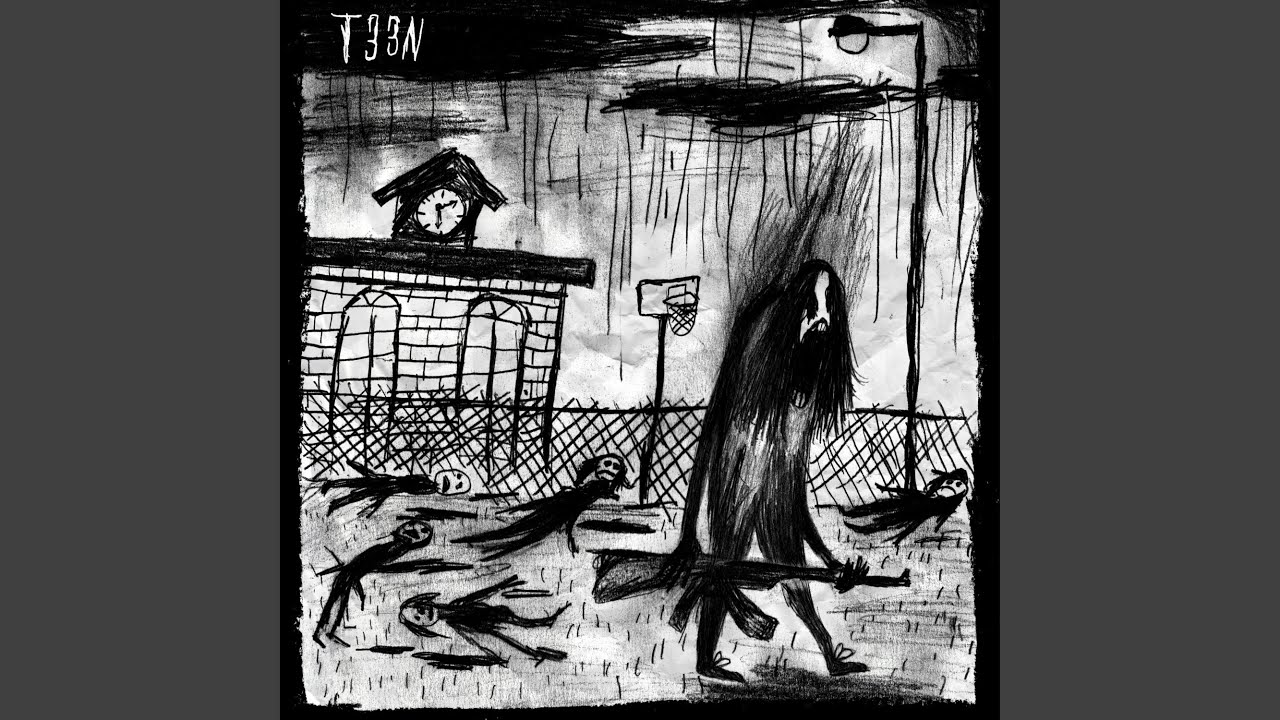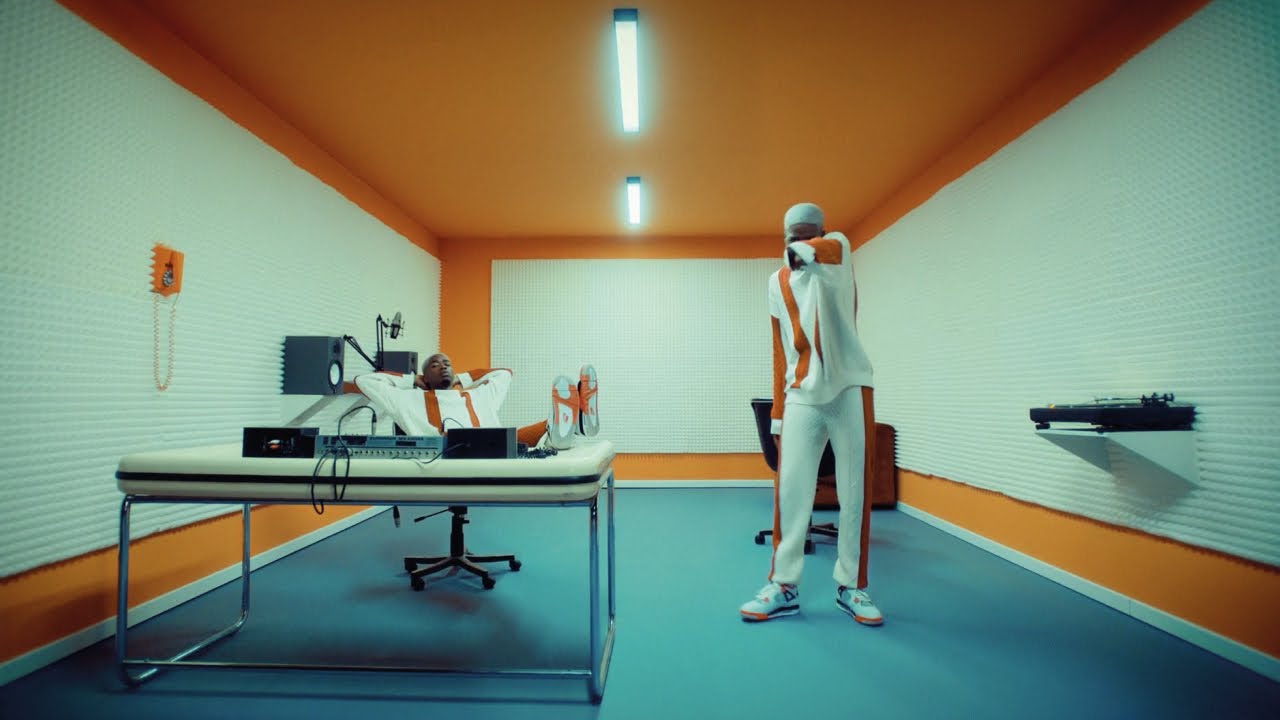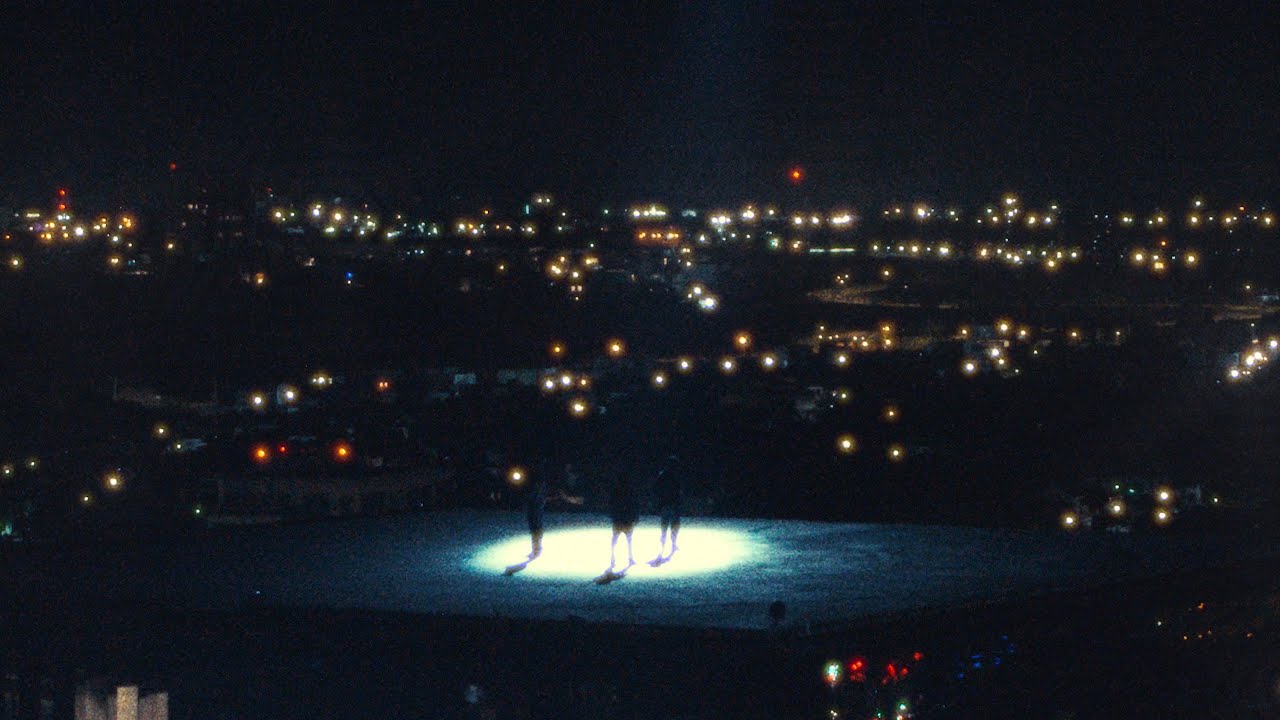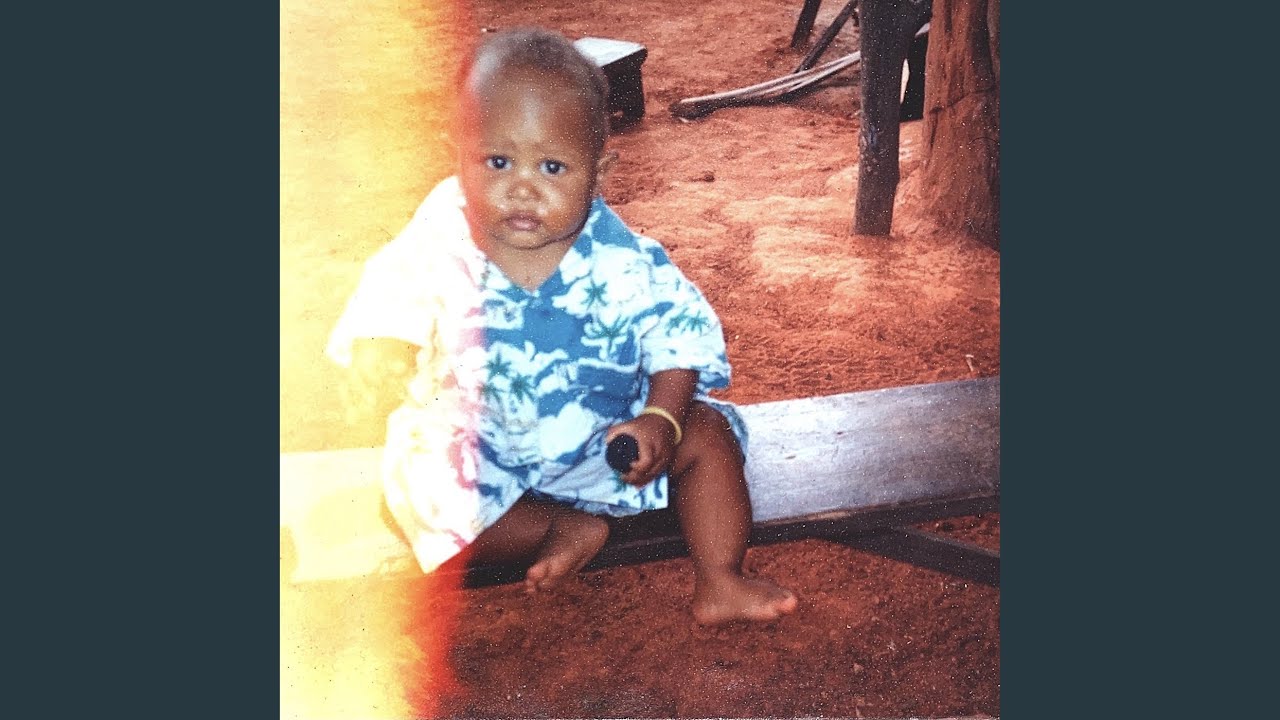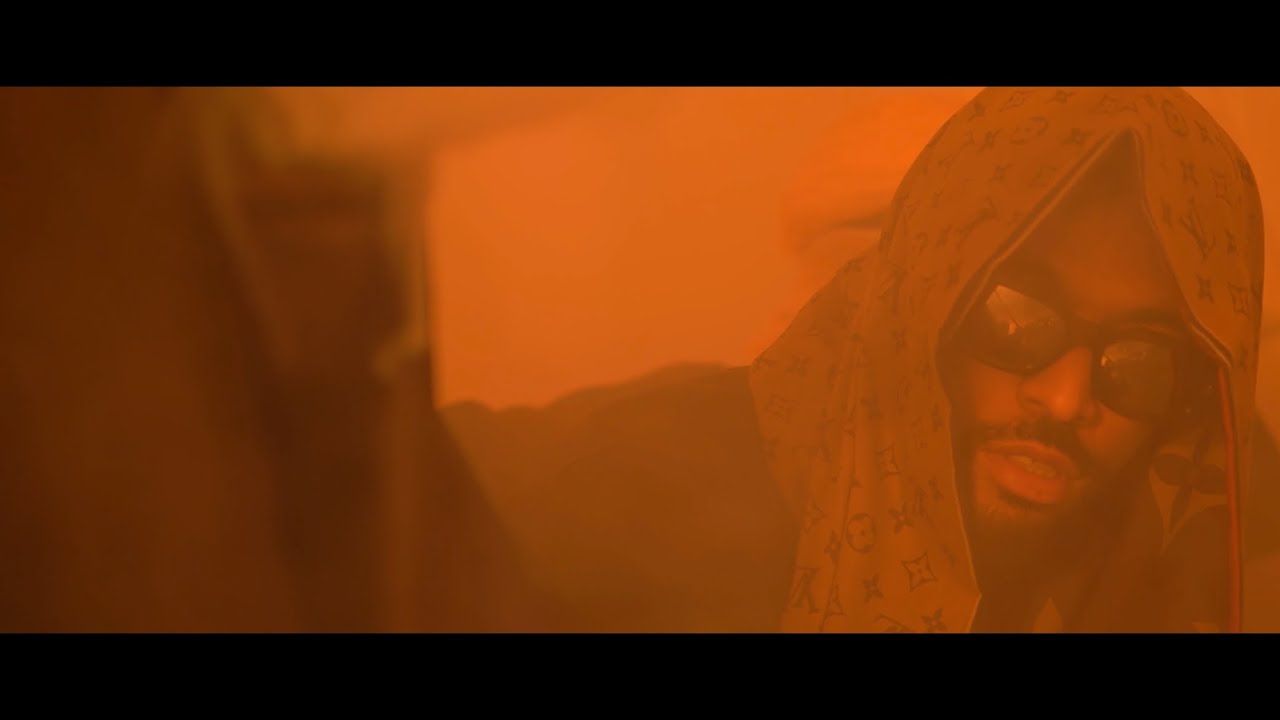As with the umbrella term ‘rap’ in the UK, French rap now encompasses all manner of styles. But there are also crucial differences between the two, other than the fact that homegrown rap still sells a lot more in France than its equivalent over here. When it comes to the influence of the Anglosphere, the impact of US styles appears far more significant than that of UK-centric genres.
Both countries have a drill scene, with France’s undoubtedly inspired by the British spin on the Chicagoan export, but grime hasn’t crossed over in any significant way. And although the UK does have artists that could be placed within the (suitably nebulous) ‘cloud rap’ bracket, there’s no comparison with the prominence of the heavy-lidded, Auto-Tune-dominated trap style in France. The reasons for that go beyond the gravitation pull exerted by the States, to the place that North African music, particularly raï – which employed AutoTune some time before any Southern rappers began experimenting with the technology – in the French pop landscape.
But the scenes meet again in Afro trap and Afrobeats (styles emerging from communities shaped by both countries’ colonial exploits in other parts of Africa) and in the absorption of flavours from Latin music and reggaeton. Beyond these dominant forms, and pop rap, all sorts of trap-derived music is there to be discovered, from plug – another, super laid-back import from the southern States represented in France by the likes of Serane and SouthLove – to trap metal.
All of this begs the question, for me anyway: does French rap seem particularly exciting now because I’m paying more attention – the more you look, the more you find – or is this genuinely an exceptional moment? The evidence for the latter proposition can certainly be found in a bevy of albums and mixtapes unleashed over the summer.
I’ve covered a few below but honourable mentions also to Jorrdee’s deliciously eerie Wavers II, the gritty New York stylings of Benjamin Epps’ Fantôme Avec Chaffeur, the hugely promising and versatile Tuerie’s Bleu Gospel and Zinée’s sweet, sharp cyber-pop on Cobalt.
Some of them feature in the latest Rockfort mix, along with a track from a great collaborative EP from “brothers in sound” PEEV & Reality Check, Competition For Status; a slice of KASPAR (aka musician and sound artist Yérri-Gasper Hummel)’s MFD – Music For Dance, featuring collaborators including Christine Ott and Duncan (son of Richard) Pinhas; a rusty metal trap cut from rising producer Simo Cell’s Yes.DJ mini album; Don Nino – of NLF3 – and Van Tropez adding a little freak rock spirit and Picardie-born Montreal-based member of Moss Lime and Phern with some delightful post-punky pop from her solo album Regulus.
Having mentioned Afro trap, it’s only fitting that I include the new album from its acknowledged inventor MHD. I’ll be honest, the idea of a whole MHD album has never appealed massively. It’s the numbered Afro Trap tracks, with their coiled energy and hyper-exuberance – Mansa features ‘Afro Trap Part. 11 (King Kong)’ – that are the most seductive. But ‘Fiesta’, ‘Sagacité’s grime-y bass and the technoid synths of ‘FNR’ deliver, and it closes with the pretty astonishing ‘9min’; MHD was released on bail last year, having spent 18 months in prison without trial having been charged with voluntary manslaughter. At exactly nine minutes long, the track is presented like a telephone call from prison in which the Parisian rapper settles scores, addresses life in prison, deceased friends, social media, poverty, self-deception and, er, football player Andy Carroll over a stirring, piano-led backing that is epic without becoming overblown.
Laylow’s debut Trinity, one of the finest albums of last year, saw him cross over into the mainstream. The follow-up, which is also a kind of prequel, has cemented that position and taken him to the top of the French charts. L’Étrange Histoire De Mr. Anderson, like Trinity is heavy on narrative, and has a sound to match its storyline – Trinity’s deliberately ‘digital’ sound matched a tale concerning the entanglement of ‘Laylow’ (the album’s semi-fictional protagonist) with a piece of emotion-simulating software; Mr. Anderson, while not dispensing with AutoTune, employs more analog instrumentation to accompany a dark fable that rewinds to ‘Laylow’s pre-fame existence, one in which he is haunted by a sandpaper-voiced apparition, Mr. Anderson, who accosts him in all sorts of awkward places (including the toilets of a nightclub).
Laylow has frequently used the pseudonym for his production work (like Trinity it’s a reference to The Matrix) and it doesn’t take too long to realise that Mr. Anderson is none other than ‘Laylow’s alter-ego or double. Tim Burton has been cited as a touchstone for the album but the theme of the double is considerably older, as old as literature, running from antiquity, through Shakespeare, Stevenson’s The Strange Case Of Dr. Jekyll And Mr. Hyde – explicitly referenced in the album’s title – Fight Club and beyond, and Mr. Anderson’s psychodrama also maps pretty neatly onto the Jungian concept of the shadow: our hidden, ‘dark’ side that is also the seat of creative potential, and which the ego must eventually confront and assimilate or else risk becoming its slave. Needless to say, ‘Laylow’ is ultimately more successful in this respect than Dr. Jekyll.
You can’t really separate Mr. Anderson from its overarching concept, with songs and interludes bleeding into each other – it’s an album that demands to be considered as a whole. But many of the individual tracks, with contributions from beatmakers like Dioscures, Ikaz Boi, Binks Beats and French rap’s pianist of choice Sofiane Pamart, are still exceptional, from slinky lead track Stuntmen – elevated further by the low-key hypnotic Wit. and Alpha Wann’s typically nimble verse – the loping, sun-stroked groove of ‘Special’, banging Damso feature ‘R9R-Line’ and ‘Que La Pluie’, which matches Trinity’s ‘Million Flowerz’ for Auto-Tune-d moroseness. Oh and, as Slowthai put it when he announced his appearance on ‘Fallen Angels’, “have you ever heard someone sing ‘suck your mum’ with Auto-Tune?”
Ateyaba is an outlier in the scene, announcing “je ne fais pas de rap français” (“I don’t make French rap”) on the intro to the 2012 track Triumph, and more recently claiming that his next album will be his last in French. He’s something of an enigma too, disappearing for years, switching to his real first name – he previously went under the name Joke – and teasing a forever-delayed album, Ultraviolet, which has almost become a joke in itself. In the meantime, though, he’s been putting out new music with no fanfare at all – first last year’s trippy Space Pack EP and, more recently, the Infinigga mixtape (packaged up with the Space Pack tracks).
The lyrics on Infinigga are frequently perfunctory, throwing in Americanisms, inhabiting the ‘playa’ character of ‘Playa Part II’: “gang gang, fucked up”, “J’baise une fan, j’crois que c’est ta femme” (“I fuck a fan, I think she’s your wife”), or retreads Serge Gainsbourg’s “sucette à l’anis” (aniseed lollipop) image on ‘Annie’, but with even less ambiguity. But his beatmakers, like Myth Syzer, Freakey and Richie Beats, have pulled out all the stops – this is molten trap, wreathed in smoke, both hazy and ultra-vivid, from opener ‘Sekhmet’, which arrives with a jackhammer beat that is seemingly being circled by a swarm of bees, to the deliciously languorous ‘Final Fantasy’. In a deceptively lackadaisical fashion, Ateyaba shifts from the imposing flow of ‘Sekhmet’ to cottony singing, breaking into blissful Auto-Tuned melisma on Playa Part II. Ultraviolet can wait a little longer if this is the displacement activity.
TripleGo’s latest project is now called Twareg 2.1 after the first release to digital platforms had tracks ending abruptly or being interrupted by bursts of white noise. Which was… interesting, but clearly not the intention. The sequel to the summery, dancefloor-oriented Twareg is also a serious upgrade, with the rapper/producer duo sliding with increased assurance through the Latino trap of ‘Morena’, the haunting Eurodance of ‘Côte D’Azure’ and ‘Safada’, stiletto-sharp reggaeton/trap hybrid for ‘Bebecita’ and the lush dancehall of ‘Chica Boom’. In spite of the sunset-on-the-riviera feel of much of the album, there’s still plenty of spleen in the bluesy sentiment and chanson-like minor-key piano chords of ‘Monday’, the more typically plaintive of ‘Ketama 2’ and ‘Une Interlude Névrosée’, which suggests more subtly layered possibilities for their sound.
Rien Virgule’s third album is their first following the death of member Jean-Marc Reilla, who contributed electro-acoustic noise to the group’s dense, claustrophobic sound. Carrying on under the circumstances can’t have been easy, but on La Consolation Des Violettes the remaining trio of Anne Careil (voice and synths), Mathias Pontevia (drums and samples) and Manuel Duval (synths and samples) have succeeded in fashioning something both terror-stricken and cathartic. Awe and unease are conveyed by Careil’s pallid, processed vocals – sometimes virtually liquified, or sucked backwards like Carole Anne calling out through the TV in Poltergeist – and these gradually unfolding pieces with their scraped, clattered rhythms. There’s a thrilling sauvagerie to the galloping rhythm and eastern melodies of ‘Le Cri Du Typograph’, ‘Toque De Clous’ has a heightened, carnivalesque quality, like a Danny Elfman score recorded in a dank medieval crypt and ‘L’Ogresse Amoureuse’ is traversed by creepy incidental noises as it ascends inexorably to a gothic peak. Brace yourself.
Stranded Horse’s Grand Radio features some of the most luxuriantly melancholy music songwriter, guitarist, kora builder-and-player Yann Tambour has recorded. At its core is the communion and contrast between the grey cloudiness of his songs, with their (often) minor-key arpeggios and feeling for time’s ravages and consolations, and the spirals of light unspooled from the kora of Bocar Cissokho, or Boubacar, cousin and pupil of master player Ballaké Sissoko.
The songs are propelled by Sébastien Forrester’s drumming, using a custom kit that incorporates dunduns (a type of West African drum) and a gourd played with the foot, and sometimes given added relief by the violin of Carla Pallone (Mansfield TYA, VACΛRME), in a beautifully clear mix. Having lived in the UK for many years, Tambour gives – on ‘So Low’ – a very personal take on B****t, addressing a people who are “shrivelling where you should grow”, but also looking anxiously at his own country as the song skips nimbly to an accordion and keyboard-augmented crescendo.
English is more often his language of choice, but French brings out a more mellifluous tone on ‘Le Ciment Dessous Nos Pieds’ (which also comes in an English version), and on ‘Rumba De Trépas’ – the album’s most upbeat track – there’s even a little of the easy warmth of Serge on Gainsbourg Percussions. The hypnotically poised ‘Thiely’, is a French translation of the original Wolof lyrics of Star Band de Dakar’s ‘Thiely’, adapted with the permission of one-time member Youssou N’Dour.
In 1962, Jacques Brel sang about ‘Une île’ – an island – “where men wouldn’t be afraid, and where it’s gentle and calm like your mirror”. On his first solo release Tancade, cellist Gasper Claus – who also plays in VACΛRME with Carla Pallone – also imagines the possibility of an island, inspired by a few solitary days spent in a small village in the Luberon, central France. Its opening track, also called ‘Une île’, has a similar sense of arrival, the first glimpses of paradise as the mists clear, except here expressed in purely instrumental form. It begins in near silence, then a little wind and some distant, keening tones, with Claus also producing sounds like seabirds or frolicking dolphins. It’s gorgeously visual. He relies almost exclusively on his instrument, as well as pedals, using extended techniques to, for example, play a rhythmic counterpoint to what sounds like a programmed (or at least looped) rhythm on the shimmering ‘2359’. But there’s shade and mystery too – on E.T. (Extra Terre Version), it’s like you’ve wondered dazed into an unfamiliar clearing, and ‘1999’ seems animated as much by a sense of tragedy as wonder.
Finally, a couple of fine tape-and-digital releases. The first is from new, Marseille-based label Champ Döner and inaugurates a series of split projects. This one features two duos: Humbros and R.I.P., who contribute two tracks and remix one of the other’s. It’s an extremely complementary, coherent pairing with both producing squelchy, crunchy, idiosyncratic music with a warm, dubby feel enhanced by Ernest Bergez (Sourdure)’s mastering. Humbros ‘Sumac’ lays chiming percussion over watery loops and cute synth parps, and ‘Bitacola’ flops along on a scrumptiously chewy dancehall rhythm. R.I.P.’s lengthy ‘Chuikonminding’ is a psychotropic journey through humid jungle terrain, ‘Fléchette Canada Dub’ a more succinct, rootsy excursion with Wurlitzer-style synths. Both remixes are ace too.
Or Or is a solo project from Aurore Debret, guitarist with excellent noise/psych outfit Dragon Du Poitou, and her Extra Systole tape is just as tangy, from the auroral drone of ‘Vertu’ and Seefeel-like dubby post-rock on ‘Tradilège’, to ‘Sotoca’s choppy electro-funk. ‘Jour De Gloire/Synchrone’ pulls the trick of making it sound like the tape is melting to the sound of a reggae-flavoured birthday song, before a staccato, metallic melody, not unlike Altered Images’ ‘Happy Birthday’, kicks in and wisps of delayed guitar drift across the picture.
Quietus Mix 28
Humbros – ‘R.I.Poste’ Remix (Champs Döner)
Ateyaba – ‘Final Fantasy’ (Capitol Music France)
Rien Virgule – ‘L’Ogresse Amoureuse’ (La République Des Granges/Permafrost/Zamzamrec/Murailles Music)
PEEV & Reality Check – ‘Below The Line’ (Music For Commercials)
Kaspar – ‘Sofa’ (Lab’Ut)
Laylow – ‘Special’ (Digitalmundo)
Simo Cell – ‘Farts’ (TEMƎT)
TripleGo – ‘Gg’ (Twareg)
Jorrdee – ‘De Gaulle Part. 2’ (Danny)
Or Or – ‘Tradilège’ (Mus Joutra)
Van Tropez – ‘Prop Prop’ (Self Released)
Don Nino – ‘Rainbow’ (Prohibited Records)
Stranded Horse – ‘Thiely’ (Ici D’Ailleurs)
Gaspar Claus – ‘2359’ (InFiné)
Hélène Barbier – ‘Palissade’ (Celluloid Lunch)


